1. The Andy Griffith Show – A Radical Take on Small-Town Life
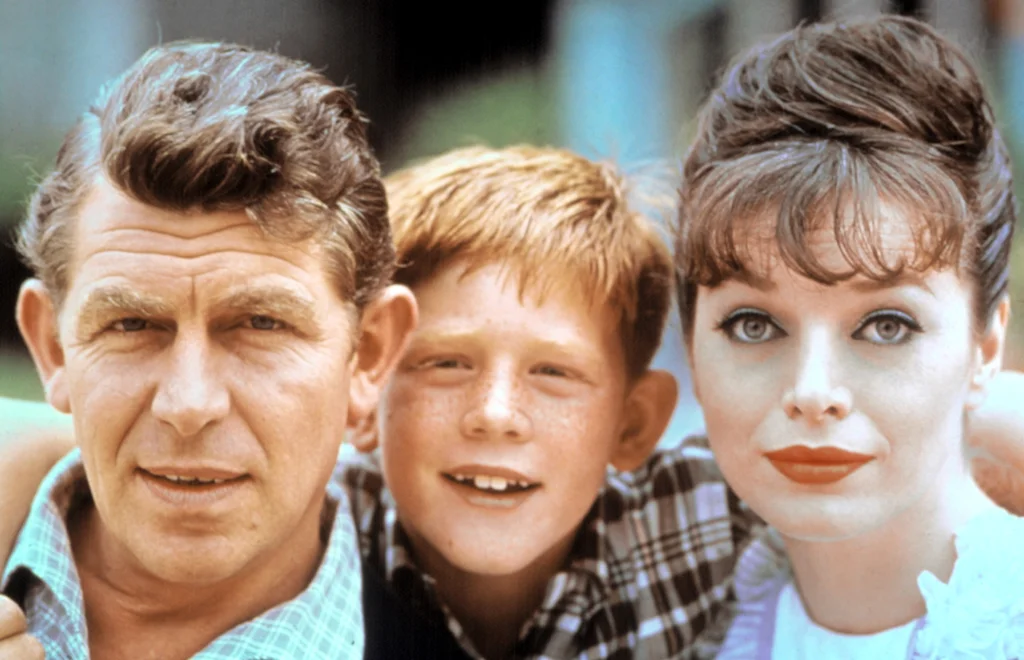
At first glance, The Andy Griffith Show might seem like the epitome of wholesome, small-town Americana, but beneath the surface, it tackled some pretty controversial topics for its time. The show was set in the fictional town of Mayberry, where Sheriff Andy Taylor tried to maintain law and order in a laid-back, idyllic community. However, it wasn’t all charm and humor; it subtly critiqued societal norms, especially regarding race and authority. By presenting Sheriff Taylor as a calm, reasoned figure, it challenged the more authoritarian styles of leadership that were prevalent in the 1960s.
What really stirred the pot, though, were the moments when the show addressed issues like segregation and prejudice, albeit through humor and clever writing. The character of Otis the town drunk, for example, was treated with a kind of compassion that was rarely seen on TV. And when The Andy Griffith Show aired an episode involving the potential integration of a local diner, it pushed the boundaries of what mainstream TV would typically address.
2. That Girl – Breaking Stereotypes About Women’s Roles
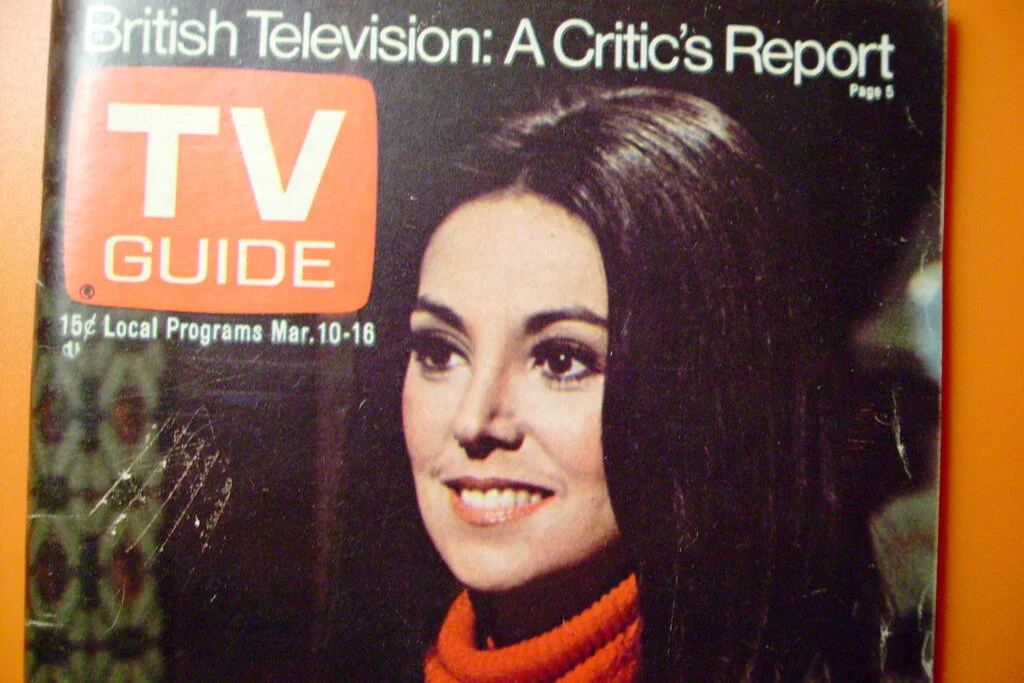
That Girl was a groundbreaking sitcom that took a bold step in the portrayal of women’s independence. Marlo Thomas starred as Ann Marie, an aspiring actress trying to make her way in New York City. The show presented a woman who was determined to make her own way, without relying on a man to define her. This was a radical departure from the traditional portrayals of women in TV shows up until then, where they were often depicted as housewives or secondary characters.
The controversy came from the fact that That Girl dared to present a single woman who was not solely focused on finding a husband or fitting into traditional gender roles. Ann’s character was fun, driven, and unapologetically ambitious, which struck a chord with women who were starting to challenge societal expectations. This progressive portrayal of women’s independence was seen as a threat to the status quo in the 1960s.
3. The Smothers Brothers Comedy Hour – A Bold Political Voice
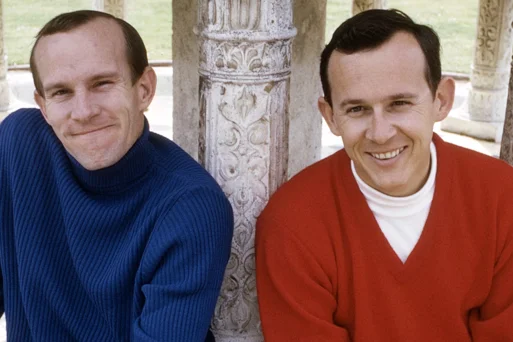
The Smothers Brothers Comedy Hour was a variety show that was anything but tame. It became infamous for pushing the boundaries of political humor and satire, often criticizing the government and the Vietnam War. The show featured a mix of musical performances, stand-up comedy, and sketches, with Tom and Dick Smothers at the helm, each providing a mix of sharp wit and social commentary. Their willingness to take on political topics made the show controversial in an era when such topics were considered off-limits for mainstream television.
The Smothers Brothers were regularly at odds with CBS, who were uncomfortable with the level of political dissent in the show. The duo’s satirical sketches and pointed jokes about the government and social issues often led to episodes being censored or even pulled from airwaves. The show’s defiance was seen as both revolutionary and dangerously subversive at the time, making it a flashpoint in the battle between entertainment and political power.
4. I Spy – The First Major African-American Lead
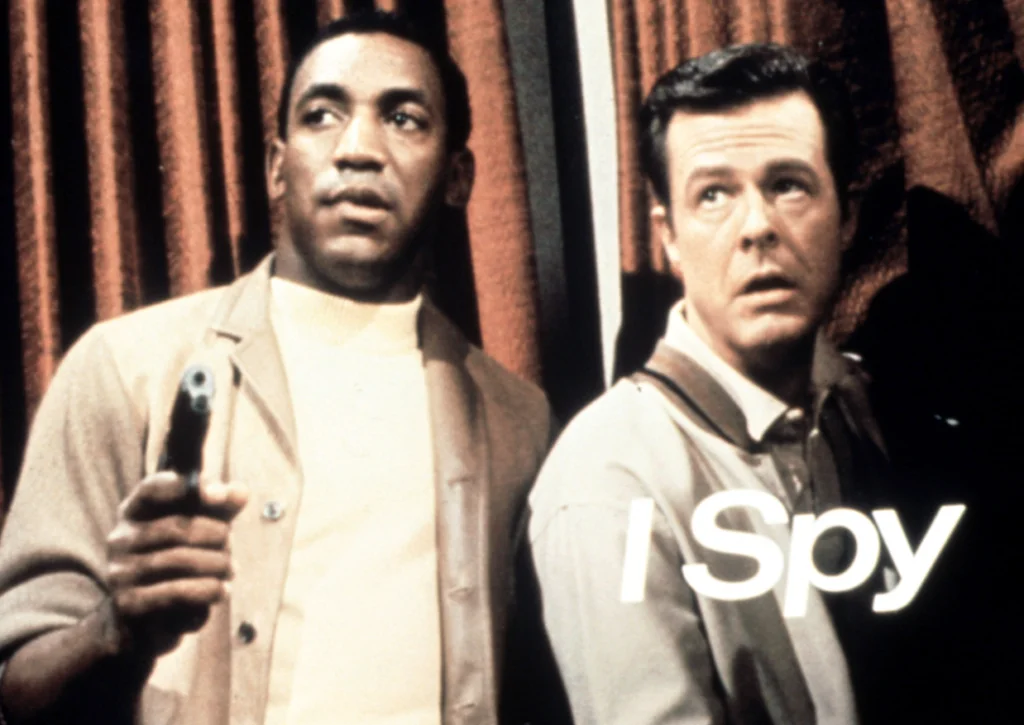
I Spy wasn’t just groundbreaking for its action-packed espionage plots; it was also a pioneer in racial representation on television. Starring Robert Culp and Bill Cosby, it made history by featuring Cosby as the first African-American actor in a major dramatic role on television. His character, Alexander Scott, was a suave, intelligent secret agent who held his own alongside his white counterpart, making a powerful statement about racial equality at a time when most TV shows were segregated, even in their casting.
The show stirred controversy not only because of Cosby’s prominent role but also because it portrayed the idea of black and white characters working together as equals. In an era still deeply entrenched in segregation and racial tension, I Spy was a significant step toward breaking racial barriers on TV, though it was met with resistance from some viewers. Its success helped open doors for more African-American actors to take on leading roles in mainstream media.
5. Star Trek – A Progressive Vision of the Future
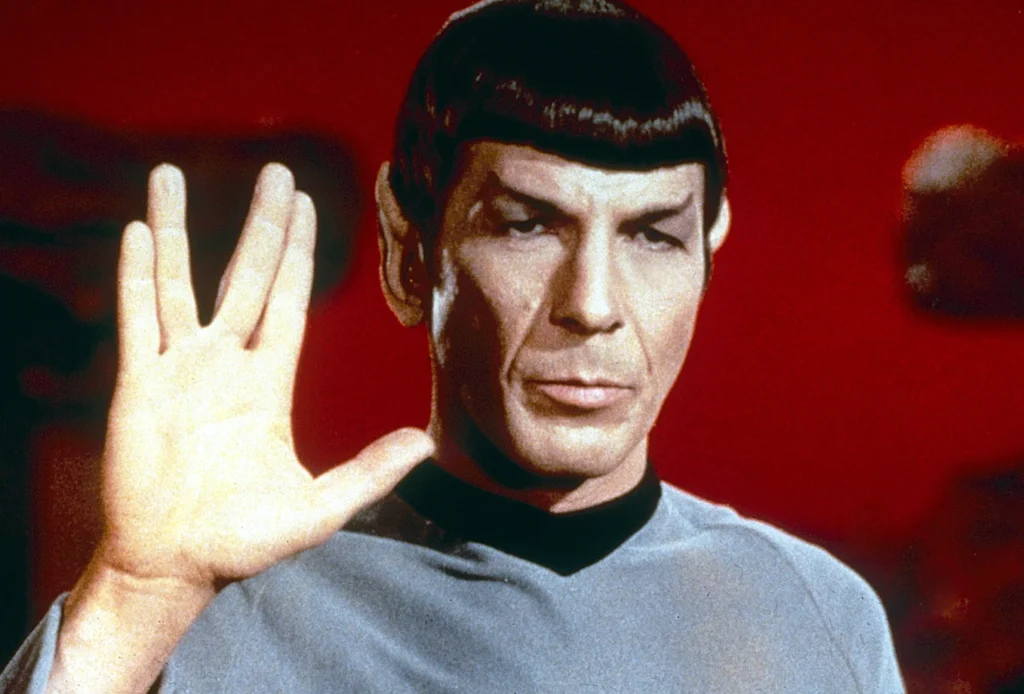
When Star Trek first aired in 1966, it boldly went where no TV show had gone before—not just in terms of space exploration, but also in its portrayal of social issues. The show, set in a utopian future, featured a diverse cast that included a Russian, an African-American woman, and a Japanese man, a radical departure from the overwhelmingly white casts of most TV shows at the time. It also addressed themes like racism, war, and social inequality through allegories and speculative scenarios that forced viewers to think about contemporary issues.
Perhaps the most controversial moment came during an episode featuring a kiss between Captain Kirk and Lieutenant Uhura, played by Nichelle Nichols. The interracial kiss was groundbreaking and considered scandalous at the time, especially in the racially charged climate of the 1960s. Star Trek used its platform to challenge the norms of television and make a powerful statement about unity and equality in a time of great division.
6. All in the Family – A Raw Look at Social Issues
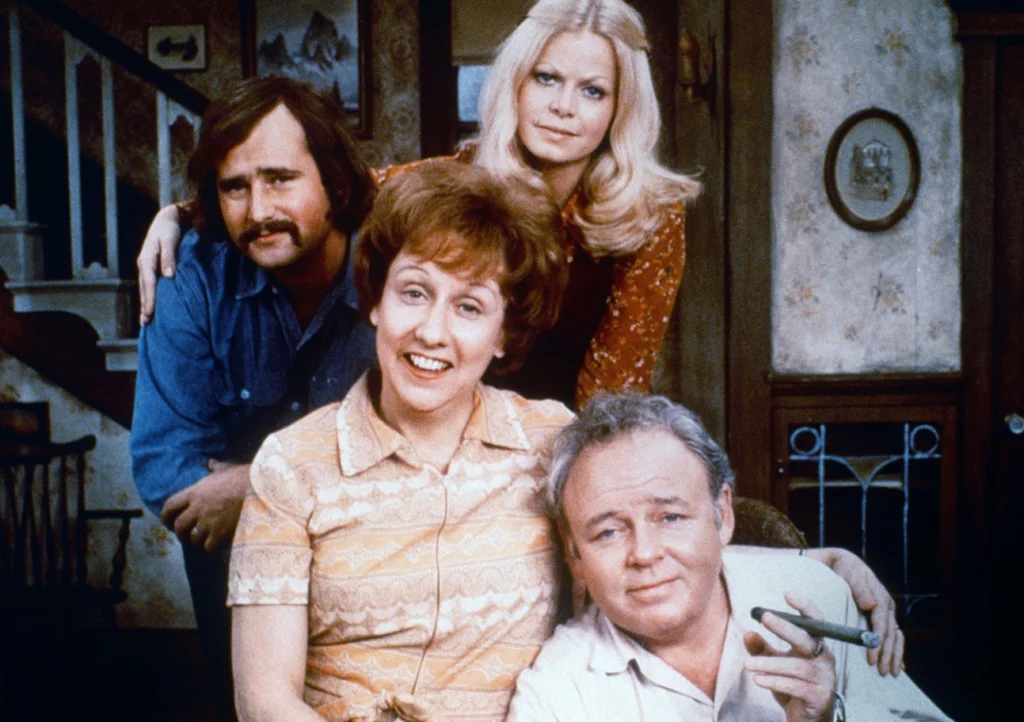
All in the Family was one of the most controversial shows of the 1970s, though it started in the late ’60s. The show’s protagonist, Archie Bunker, portrayed by Carroll O’Connor, was a bigoted, outspoken working-class man who voiced his outdated and prejudiced opinions on everything from race to gender roles. What made the show so controversial was that it didn’t shy away from Archie’s offensive views but rather presented them in a way that made viewers confront the ugliness of such attitudes head-on.
The show used Archie’s bigotry to highlight the changes in American society, forcing viewers to reckon with issues like racism, homophobia, and sexism. It was a sharp critique of American values, particularly regarding the ways in which people clung to outdated ideals. By placing such raw, uncomfortable content at the forefront of primetime television, All in the Family broke down the walls of what was considered acceptable for mainstream TV, challenging viewers to take a hard look at the issues of the day.
7. The Munsters – Satire on Family Values
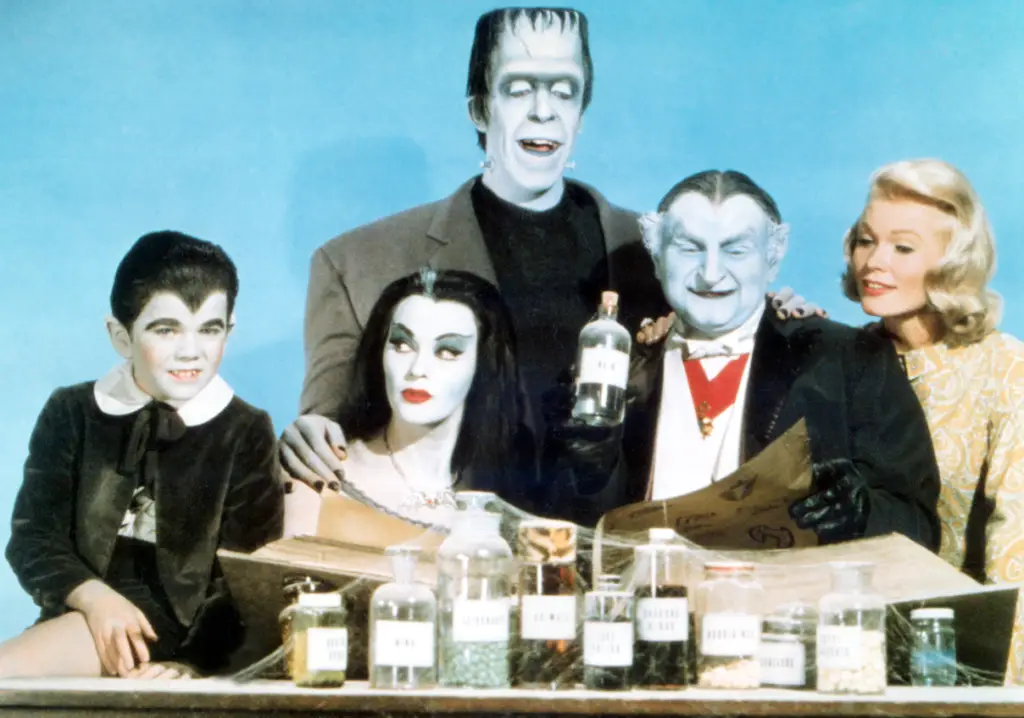
The Munsters was a family sitcom that was deceptively dark for its time, even though it was primarily a comedy. The show revolved around a quirky family of monsters, with characters like Herman Munster, a Frankenstein-inspired patriarch, and Lily Munster, his vampire wife. While the premise might seem lighthearted, The Munsters tackled deeper societal issues under its monstrous exterior, satirizing the American family and its norms. The show’s portrayal of non-traditional family members, including the young werewolf Eddie and the creature-like Grandpa, raised eyebrows in a society still heavily invested in traditional family structures.
What truly made the show controversial was its skewering of the nuclear family, often showing how society’s “ideal” families were sometimes more dysfunctional than those who were considered “different.” The show’s message that “normal” could be subjective and that love and acceptance come in many forms was revolutionary for the time. It forced audiences to examine their own prejudices and question what really makes a family “normal” or “acceptable.”
8. The Monkees – The First Manufactured Band
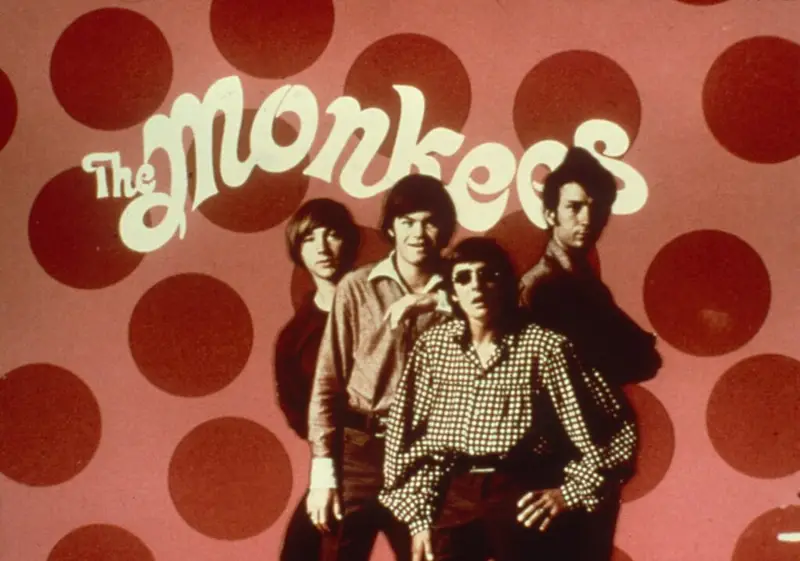
In the 1960s, The Monkees were a wildly popular TV band, but the concept of the show itself was quite controversial. The series followed four young men who were hired to portray a rock band, despite having no real musical talents at the start. The idea of a “manufactured” band—where actors pretended to play music they didn’t actually perform—was a huge deviation from the organic artistry that typically defined musical acts. The show was seen as both a satire of the music industry and an experiment in pop culture, blending the boundaries between television and real life.
This concept led to considerable backlash from critics and musicians, who felt the show was disingenuous. Many in the music industry believed it undermined the authenticity of real musicians and devalued music as an art form. Despite the controversy, The Monkees became a major success, with the actors eventually learning to play their instruments and releasing chart-topping albums, further blurring the line between TV performance and real musicianship.
9. The Twilight Zone – Challenging Social Norms
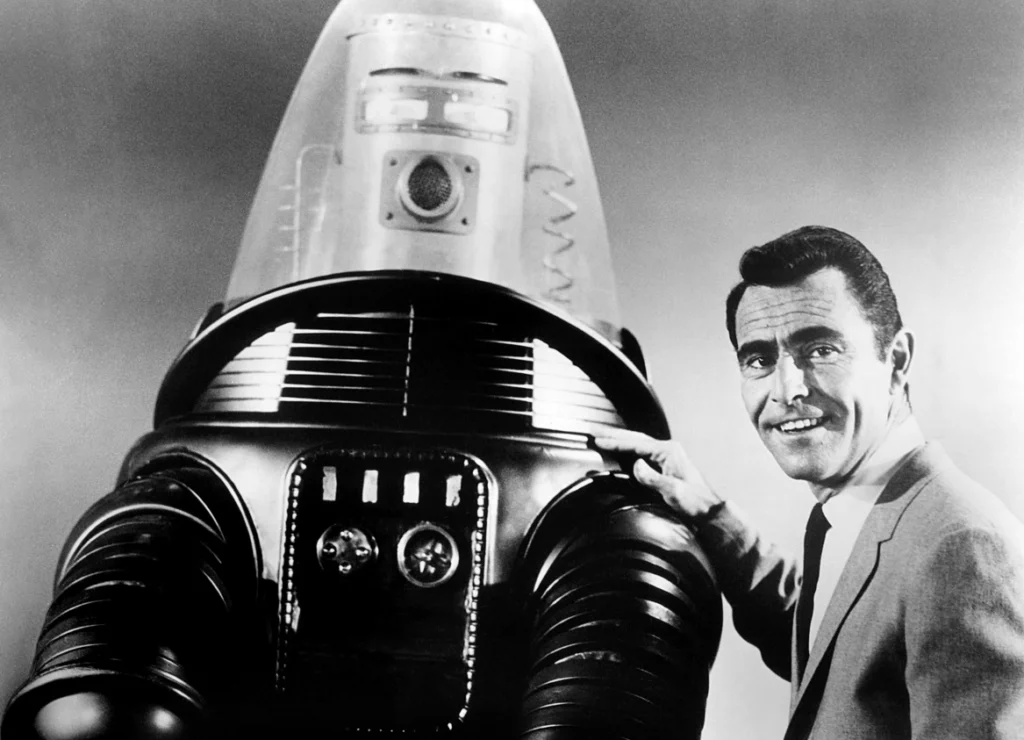
While The Twilight Zone is remembered today as one of the greatest science fiction series of all time, its thought-provoking storytelling often pushed boundaries that were considered too controversial for its era. Hosted by Rod Serling, the show used speculative fiction and surreal storylines to comment on contemporary social issues, including racism, the military-industrial complex, and the paranoia of the Cold War. With episodes that directly critiqued societal issues, it was groundbreaking in its willingness to question the status quo.
One of the most controversial moments came in the episode “The Monsters Are Due on Maple Street,” which paralleled the fear and hysteria of McCarthyism and the Red Scare. It was a daring critique of human nature, showcasing how fear can turn communities against each other. By exploring topics like prejudice, conformity, and fear of the “other,” The Twilight Zone created a platform for hard-hitting social commentary in a time when such topics were rarely discussed on television.
10. The Outer Limits – Sci-Fi Meets Moral Dilemmas
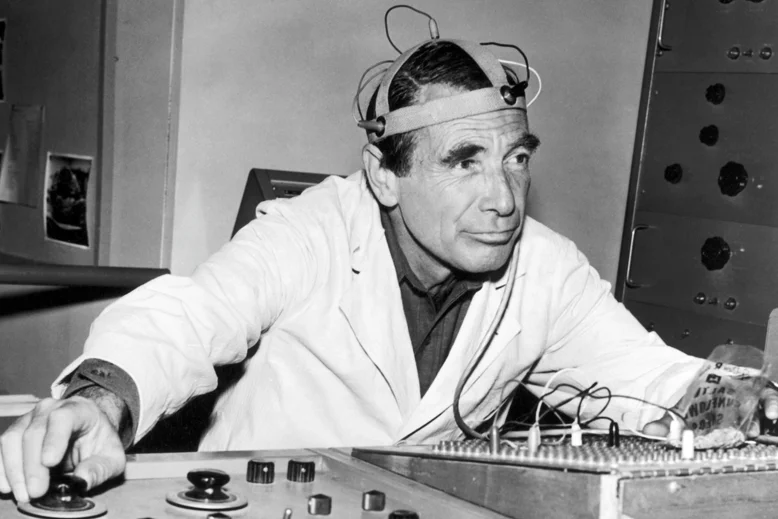
Much like The Twilight Zone, The Outer Limits delved into the realm of science fiction, but it also engaged with some pretty controversial moral dilemmas. The show often explored themes such as government secrecy, the consequences of scientific experimentation, and the ethics of technology. Many episodes focused on the fear of the unknown and the moral consequences of mankind’s ambition, offering both cautionary tales and deep philosophical questions.
The show’s willingness to tackle topics like the ethics of war, nuclear destruction, and political corruption was controversial during a time when the fear of nuclear annihilation was very real. It wasn’t just escapist entertainment; it was thought-provoking and raised questions about human nature and our impact on the planet. Its willingness to address such serious issues, coupled with its haunting sci-fi elements, made The Outer Limits both a critical darling and a source of tension for more conservative audiences.
11. The Defenders – A Legal Drama with a Conscience
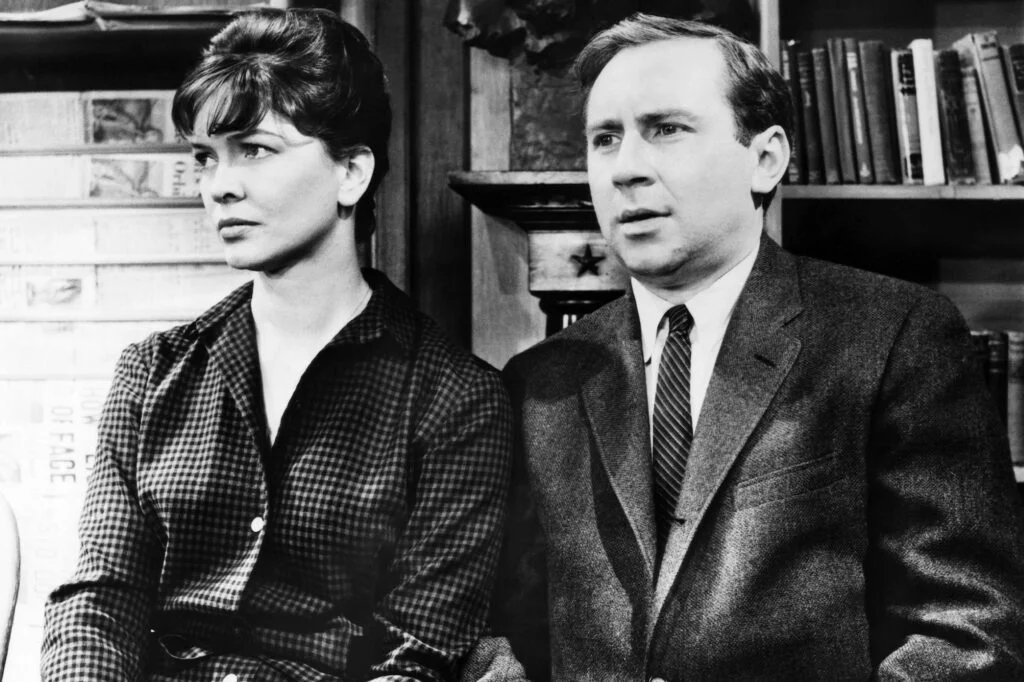
The Defenders was a legal drama that stood out in the 1960s for its exploration of morally complex cases and its critique of societal injustices. The show centered around a father-son legal team, played by E.G. Marshall and Robert Reed, who defended individuals caught in complex, often controversial situations. What set the show apart was its willingness to take on hot-button topics, from civil rights to corruption within the legal system, something that was considered rare on TV at the time.
The show’s ability to tackle issues like racial discrimination, abortion, and police brutality was groundbreaking. In one episode, the defense of a young woman who had an abortion sparked controversy due to the subject matter, which was considered taboo. The Defenders didn’t just entertain; it challenged its audience to think about the ethics of law and society, making it a significant, albeit controversial, show during its time.
12. The Invaders – Paranoia and Alien Invasion
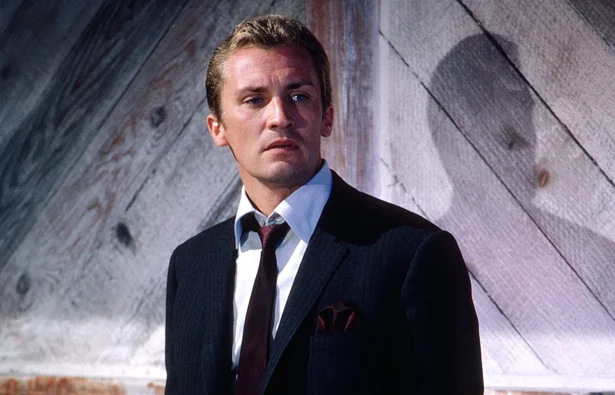
The Invaders was a science fiction series that revolved around the idea of alien invaders secretly taking over Earth. While the premise itself wasn’t all that unusual for the genre, the show’s themes of government cover-ups and the loss of personal autonomy struck a deep chord during the 1960s, a time rife with distrust of authority. The main character, an architect played by Roy Thinnes, discovered the aliens’ plans and spent his time trying to stop them, all while being hunted by the very people he once trusted.
The show’s portrayal of invisible threats and conspiracies was particularly poignant during the Vietnam War and the growing fear of the government’s role in shaping public opinion. The fear of losing individual rights and the invasion of privacy were very real concerns for many viewers. In many ways, The Invaders mirrored the paranoia that was becoming increasingly prevalent in American culture, making it both controversial and oddly relevant for its time.
13. The Ed Sullivan Show – Challenging the Status Quo
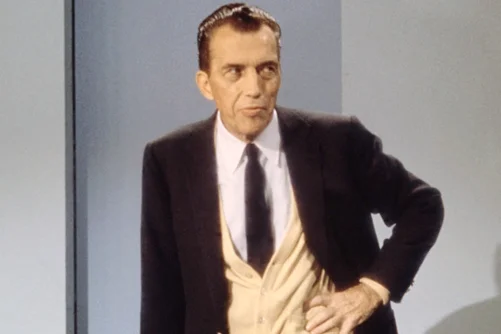
While The Ed Sullivan Show is mostly remembered for its variety of musical performances, including appearances by Elvis Presley and The Beatles, it was also known for pushing the boundaries of what was acceptable for a mainstream variety show. The show aired from 1948 to 1971 and was a huge platform for new and controversial acts, often featuring musicians and comedians who were challenging social norms. At a time when rock and roll was still viewed with skepticism by older generations, Sullivan was willing to put rebellious artists on TV, much to the dismay of more conservative viewers.
One of the most controversial moments came when Elvis Presley appeared on the show in 1956, with his infamous gyrating hips causing a nationwide uproar. The Beatles’ U.S. debut on the show in 1964 also sparked mass hysteria, but it wasn’t all positive—many thought the British band’s influence would corrupt America’s youth. Despite the controversies, The Ed Sullivan Show ultimately became a defining cultural force in 1960s America, acting as a bridge between older traditions and the new wave of pop culture.
14. The Wild Wild West – A Bold Blend of Western and Sci-Fi
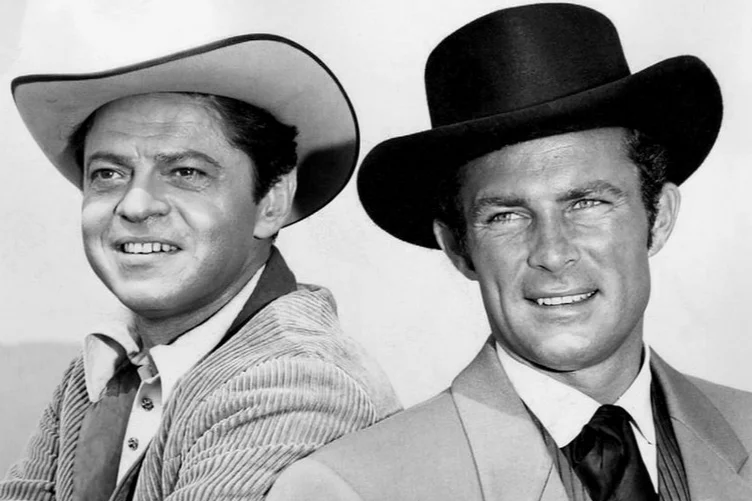
At first glance, The Wild Wild West may seem like a typical Western, but the show was far from ordinary. Combining traditional Western themes with science fiction elements, it featured two secret agents, James West and Artemus Gordon, who used high-tech gadgets to battle nefarious forces in the 19th-century American frontier. The show was one of the first to blend the Western genre with futuristic technologies, creating a unique mix of action and science fiction that was rarely seen on TV at the time.
The show’s mix of gunslingers, gadgets, and larger-than-life villains was considered radical for its era. It was a time when Westerns were usually rooted in realism, and introducing science fiction elements—like steam-powered robots and diabolical inventions—was seen as both absurd and controversial. By fusing two popular genres, The Wild Wild West challenged expectations and set a new precedent for genre-crossing television shows, blending action, adventure, and social commentary in ways no one expected.
15. The Prisoner – A Surreal Look at Freedom and Control
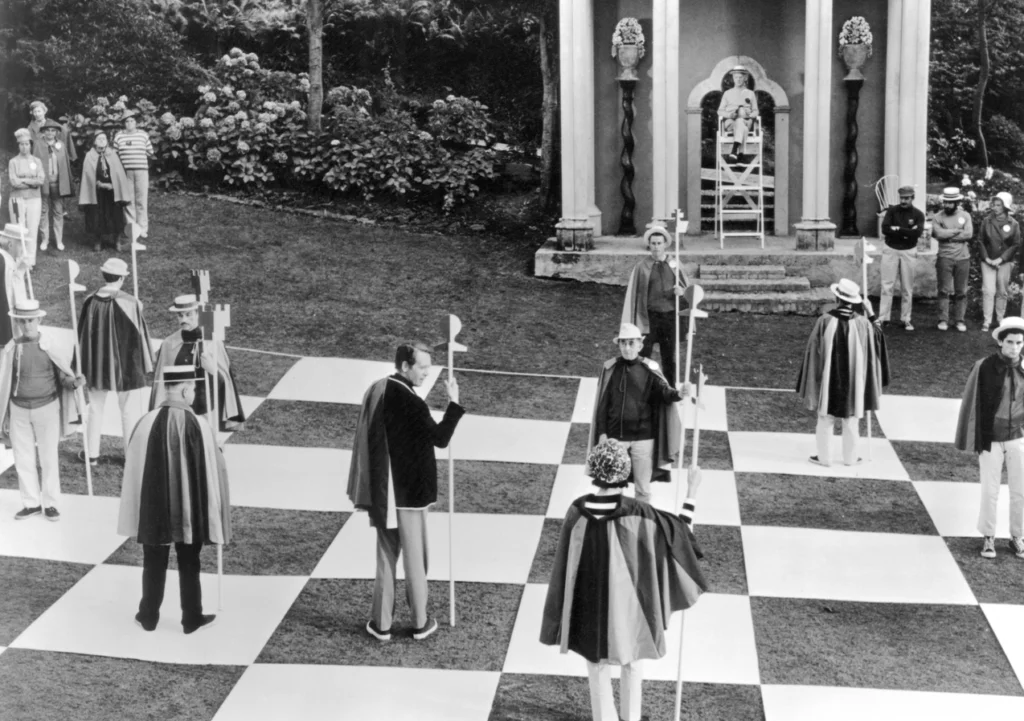
The Prisoner was a British television series that was both surreal and deeply philosophical, mixing science fiction with political commentary. The show follows an unnamed man (played by Patrick McGoohan), who is imprisoned in a mysterious village after resigning from his position as a secret agent. The show was controversial because it explored the themes of individual freedom versus societal control, and it posed questions about authority, identity, and power in a way that was unprecedented for its time.
The show’s complex narrative and the eerie, surreal nature of its setting made it hard for audiences to digest, and many found its subtext about personal autonomy and societal manipulation to be unsettling. The episode “Fall Out,” which revealed the true nature of the village and its inhabitants, left many viewers confused and disturbed. The Prisoner was one of the first shows to use its narrative to comment on social and political systems, creating an intellectual challenge for viewers that had rarely been attempted on television.
16. Dark Shadows – A Gothic Soap with a Dark Twist
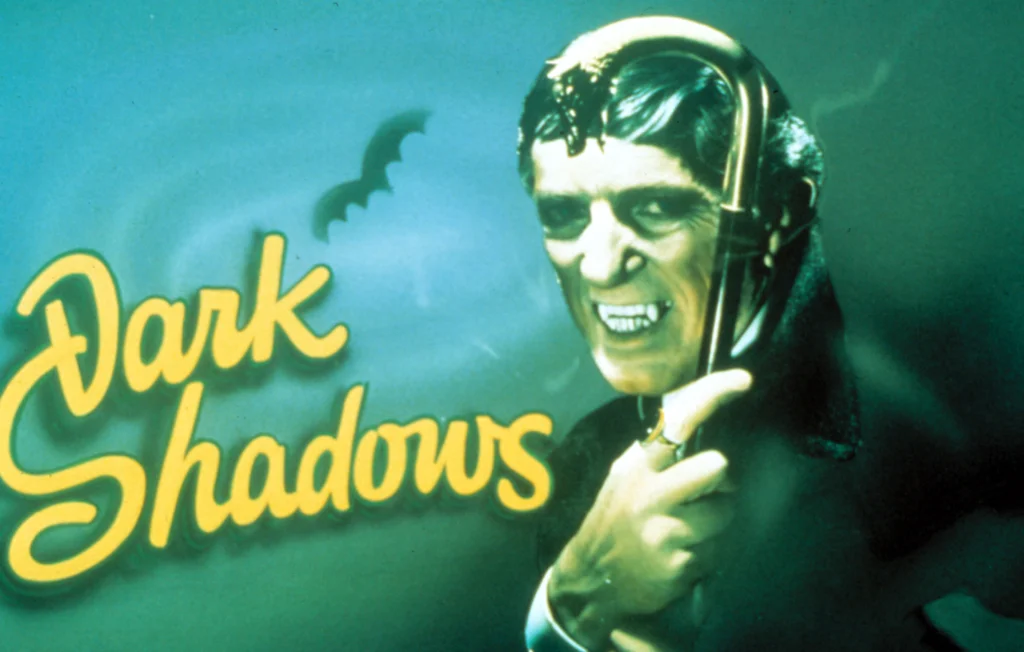
Dark Shadows was a soap opera that introduced supernatural elements into the daytime TV landscape, and its mix of horror and romance made it an instant cultural phenomenon. The show, set in the eerie Collinwood Mansion, followed the life of Barnabas Collins, a centuries-old vampire who was both the show’s antagonist and tragic hero. The combination of romance, horror, and melodrama made it highly controversial, especially for daytime television, which had been known for its more conservative and family-oriented content.
What made Dark Shadows so controversial was its willingness to explore themes of death, the supernatural, and even moral ambiguity. In an era when vampires were typically seen as villains, Barnabas was presented as a conflicted, complex character. The show’s departure from traditional soap opera conventions, especially with its gothic themes, made it stand out and become a cult hit, despite sparking controversy for its dark subject matter and unconventional storytelling.


